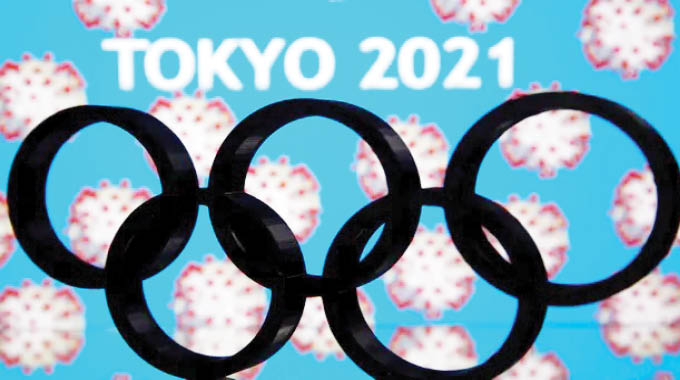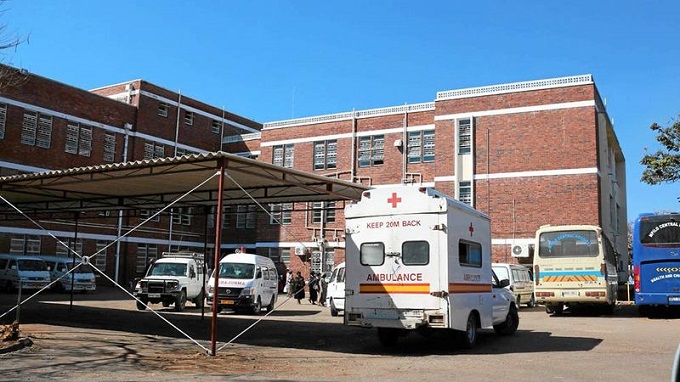Tokyo Olympics postponed

THE Tokyo Olympics are to be postponed until 2021 after talks between Japan’s Prime Minister Shinzo Abe and International Olympic Committee president Thomas Bach.
Abe said they had established that cancelling the Games was out of the question, and that Bach had agreed “100%” that a postponement was the most appropriate response to the global disruption caused by the coronavirus pandemic.
“We agreed that a postponement would be the best way to ensure that the athletes are in peak condition when they compete and to guarantee the safety of the spectators,” Abe told reporters shortly after his conference call with Bach, adding that the Games would be held by the summer of 2021.
The Games “must be rescheduled to a date beyond 2020, but not later than summer 2021, to safeguard the health of the athletes, everybody involved in the Olympic Games and the international community”, the IOC and the Tokyo 2020 Organising Committee said later in a joint statement.
The Olympic Games and Paralympic Games will continue to be called the “Olympic and Paralympic Games Tokyo 2020” even if they are held next year, and the Olympic flame will stay in Japan “as a beacon of hope to the world during these troubled times”.
Until just a few days ago the IOC, along with the Tokyo organising committee and the Japanese government, had insisted there were no plans to delay the Olympics given they were not due to open for another four months, but Japan’s NHK public television reported yesterday that Abe wanted the one-year delay.
Tokyo 2020’s fate was in effect sealed this week when Canada and Australia said they would not send athletes to Japan in July, while the British and French governments urged the IOC to make a quick decision.
The US Olympic and Paralympic committee followed suit, citing the “enormous” disruption the pandemic had caused to training and the qualification process World Athletics, the Olympic committees of Brazil, Slovenia and Germany, USA Swimming and USA Track and Field had joined the growing chorus of calls for a new date for the event.
The postponement is a blow to the host country, which has spent more than $12 billion on the event, while huge sums are also at stake for sponsors and broadcasters. Goldman Sachs estimated this month that Japan would lose $4.5 billion (550 billion yen) in inbound and domestic consumption in 2020 if the Olympics did not take place as planned.
The Nikkei, a Japanese business daily, claimed on Monday that G7 leaders had agreed to a postponement during their teleconference last week, after Abe persuaded them that cancellation was not an option.
Abe told the group that he was determined to hold the Games “in their complete form” – with the full quota of athletes and spectators – as a symbol of the world’s triumph over coronavirus, the Nikkei said. UK Prime Minister Boris Johnson reportedly responded with a thumbs-up, while other leaders nodded their approval.
But Abe then hinted that postponement was a possibility. “If the IOC’s decision means it becomes impossible to hold the Olympics in their complete form, then a decision may have to be made to postpone them,” he told parliament on Monday.
The host nation greeted the IOC’s decision to postpone the Games by up to a year with a mixture of disappointment and resignation.
Opinion polls taken before the announcement indicated that the Japanese public had already accepted that Tokyo 2020 would be sport’s biggest victims of the coronavirus pandemic. According to a Kyodo news poll last week, almost 70 percent of respondents said they did not expect the Games to go ahead this summer.
One Twitter user reacted with humour, posting an image of the “new” Tokyo 2020 logo with the zero crossed out in traditional Japanese style, its replacement numeral verified by the personal seals of the organising committee head Yoshiro Mori, Tokyo governor Yuriko Koike and Abe.
Others voiced disappointment that they would have to wait another year to watch their favourite athletes compete in Tokyo. “I’ve been looking forward to the Olympics and feel like crying,” one user tweeted. “But I understand it’s inevitable under the circumstances. My heart goes out to the athletes who have been striving to make the Olympics over the past four years – or even six-and-a-half years since Tokyo was chosen as the host city.”
Yuji Ota, vice-president of the Japan Fencing Federation, thanked everyone who had been involved in the Olympic preparations, telling them in a post: “What you have done means a lot.” He added. “But first we have to get through coronavirus. Health must come first.”
Benoît Vêtu, the head coach of the Japan track cycling team, said the IOC had made the right decision. “It’s only just been announced, so I don’t know exactly how the riders feel about it, but we’ll discuss it in the morning during training,” Vêtu told the Guardian. “I know for sure that they will stay motivated for another year. We have a very big group with some talented riders, and now they have an extra year to keep improving.”
The decision was welcomed by the British Olympic Association’s chief executive Andy Anson, who said the organisers had no choice but to cancel the Games.
“It is with profound sadness that we accept the postponement, but in all consciousness, it is the only decision we can support, in light of the devastating impact Covid-19 is having on our nation, our communities and our families,” hesaid.
“It is time for them to stop thinking about Tokyo 2020 for now and be home and safe with their families. It would have been unthinkable for us to continue to prepare for an Olympic Games at atime the nation and the world no less is enduring great hardship. A postponement is the right decision.”
Sally Munday, CEO of UK Sport, the Olympics and Paralympics funding body, promised to fully support British athletes and coaches amid the uncertainty of a “distressing period”.
“We also realise that today’s decision has significant financial implications for our high-performance system and we are working hard to identify the wide-ranging impacts and scenarios, and are in close contact with government to establish how best to support our summer Olympic and Paralympic sports and athletes to be ready for the Games when they do take place.”
The Games have never before been postponed in this way, but they were cancelled in 1916, 1940 – also a planned Tokyo Games – and 1944, during the first and second world wars. – The Guardian











Comments